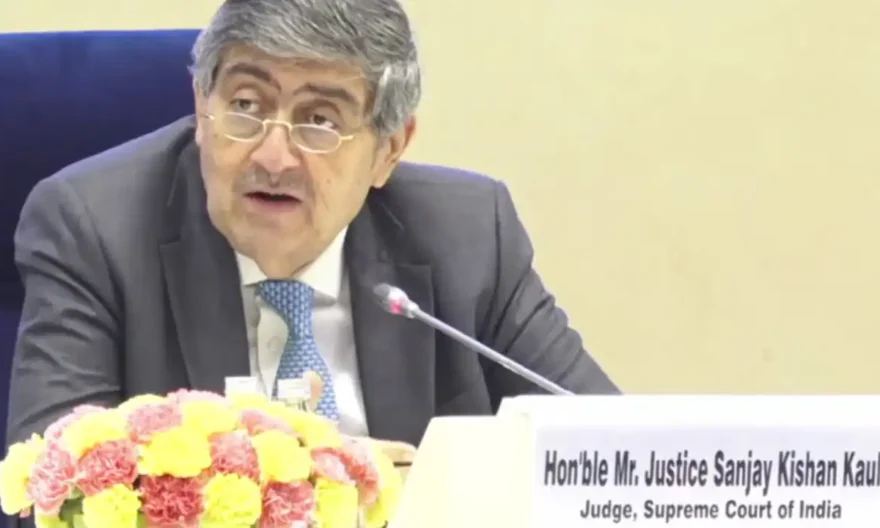
The Supreme Court Justice Sanjay Kishan Kaul stated on Saturday that any perceived obscenity in a book or work of art felt by a viewer is brought on by the viewer himself.
Speaking at a literature festival in Chennai organised by a daily newspaper, which he had joined online, Justice Kaul made the statement in reference to his 2016 verdict that ‘resurrected’ author Perumal Murugan and his book Madhorubagan.
The book and its author were both had become subjects of attacks by caste groups who claimed the story contained obscenities, particularly in reference to the Gounder caste. As the then Chief Justice of the Madras High Court , Justice Kaul had upheld Murugan’s right to freedom of speech and expression and had famously stated that if readers didn’t like the book, they should close it and throw it away.
Justice Kaul stated, “The judgement of course rejected such allegations. It held that the alleged obscenity, which may or may not exist, was not the novel’s central theme. The perceived obscenity in a book or work of art is brought about by the viewer himself. The constitutional principles of freedom of speech and expression weigh heavily in favour of the artist and cannot be disturbed.”
Justice Kaul further added that the 2016 verdict, as well as his previous rulings upholding freedom of speech and expression in the cases of late author and journalist Khushwant Singh and painter MF Husain, had led him to ponder why authors or artists chose to question the status quo did so.
“What could be the benefit, especially if it comes at such a grave personal cost, as was the case with Professor Murugan, and very recently, with Salman Rushdie? Why did the framers of our Constitution, in keeping with democratic principles around the world, choose to protect and privilege such works, especially when the ramifications of provocative art can be social disorder and, at times, violence?” the judge asked.
He stated that he believed the act of literature arose from an intellectual and cultural world full of contradictions and constant flux. And writers like Murugan had the ability to “mould a new humanity from the clay, to reshape society, chipping away at the existing social structures bit by bit.”
He added that such inquiry also made him realise that, just as authors were involved in the making and unmaking of society, the judge became the author in a courtroom.
Judges, too, seek to shape the great mass of humanity that they encounter in the courtroom in their own small way. According to Justice Kaul, each decision was an attempt by the judge to understand how social institutions should operate and how they could be made more workable within the framework of our constitutional principles.
He cited professor Robert Cover on the cost of the inherent violent proclivity in law and how it was revealed in legal interpretation. According to Justice Kaul, such violence exists even in the most prosaic of cases.
“With the stroke of a pen, someone loses their freedom, property changes hands, and one parent gains custody of a child at the expense of the other,” he explained.
Judges, like authors, take their cues from the outside world when attempting to interpret laws, Justice Kaul stated.
“They impose their own understanding and experience on this world. Judges, like authors, are neither sovereigns nor agents, “he stated.




